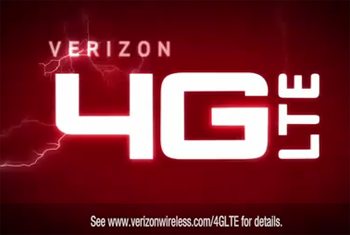Verizon Wireless could be set to play up its ongoing rollout of 1.7/2.1 GHz spectrum support for LTE services, with rumors suggesting the carrier will market the upgrades under the “XLTE” moniker.
According to a story from DroidLife, Verizon Wireless could rollout the brand as early as next week. The move will highlight the carrier’s deployment of up to 20 megahertz of spectrum in the advanced wireless services band to bolster its initial 20-megahertz LTE deployment that relies on the carrier’s 700 MHz spectrum holdings. The upgrade provides Verizon Wireless with up to 40 megahertz of LTE support in markets, with the initial deployments targeting larger, urban areas that were seeing capacity issues.
Verizon Wireless had not comment on the report.
Verizon Wireless began to throw AWS-band spectrum support into its network last year in a move the carrier said was designed to keep it ahead of consumer demand. However, reports from select markets seemed to indicate that the carrier was having capacity concerns ahead of expectations that were degrading service quality. The AWS spectrum band has more limited propagation characteristics compared with the 700 MHz band, which makes it well suited for deployment in dense, urban environments.
Verizon Wireless has been aggressive in bolstering its 1.7/2.1 GHz spectrum holdings, having initially won a handful of licenses during the Federal Communications Commission’s 2006 spectrum auction, before acquiring a substantial number of licenses through various transactions. Verizon Wireless has also said it was very focused on the FCC’s upcoming AWS-3 spectrum auction that includes 50 megahertz of new spectrum set aside for commercial services.
T-Mobile US has been aggressive in marketing its deeper LTE spectrum support following its acquisition of MetroPCS, which has allowed the carrier to dedicate up to 40 megahertz of AWS spectrum in select markets. That support has shown itself in recent speed tests that have seen T-Mobile US trump its larger rivals. Sprint has also begun to tout the future benefits of its Spark program that will see the carrier bolster its initial 1.9 GHz-based LTE deployment with more spectrum from its 800 MHz and 2.5 GHz portfolio.
The impact of Verizon Wireless’ move to bolster its LTE network for consumers will likely depend on how the carrier weaves in the additional AWS support. If Verizon Wireless continues to run the two spectrum bands separately, consumers would benefit in areas where usage has exhausted 700 MHz capabilities and they would then automatically switch over to the theoretically cleaner spectrum in the AWS band. As this would be the same amount of spectrum support, any increase in network speeds would be due to the AWS band supporting fewer customers instead of being bolstered by additional spectrum. On the other hand, Verizon Wireless could dip into the carrier aggregation capabilities embedded in the LTE-Advanced standard that would allow the carrier to combine the 700 MHz and AWS bands into one “super” channel 40 megahertz wide that would then provide additional capacity and a significant increase in network speeds.
The challenge for both of these options is the need for device support. A number of recent LTE handsets launched by Verizon Wireless have embedded support for the AWS band, but that support has been kept turned off. In some cases, an over-the-air update could be sent to the device to turn on that support and allow those devices to take advantage of both the 700 MHz and AWS spectrum bands. For carrier aggregation, it’s likely that all new handsets would need to be developed to take advantage of that capability, though there may be some software tricks that would allow the carrier to tap into those capabilities. South Korea’s SK Telecom has recently begun to rollout LTE-A services taking advantage of carrier aggregation, but noted that consumers would need new handsets in order to take advantage of that offering. Those devices are not expected to come to market until later this year.
Bored? Why not follow me on Twitter?

Verizon Wireless rumored to tout AWS LTE support under 'XLTE' brand
ABOUT AUTHOR
